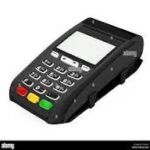No matter what the size of your medical practice is. The cornerstone of every healthcare practice is to manage patient billing and collections. This not only impacts your financial health but also improves the capacity of physicians to provide proper patient care. When you get involved in the medical billing process as a healthcare practitioner, you need to file multiple claims, and address coding errors, to ensure accuracy.
This is hectic to handle along with patients visiting to get themselves treated. However, revenue is also something that can’t be compromised. Every practice deserves a strong medical billing service & efficient patient payment collection process.
One shocking fact is that almost 1-in-5 dental invoices are 90+ days past due. This limits the chances of revenue and profit generation for healthcare professionals. There are chances when patients aren’t able to make payments. This is because they weren’t initially aware of the bill.
You need to have proper strategies in place to make sure of your revenue generation. But before you understand the strategies, it is important to know the challenges in patient payments.
Factors Contributing to the Difficulty in Collecting Patient Payments
Healthcare Is Getting Expensive Everyday
With the rising cost of getting treated, patients have to go through various financial burdens when it comes to paying for medical services. It creates a challenge for healthcare providers to get paid on time for the services they deliver.
When a patient has to struggle to generate funds for his treatment, it is tough for them to make timely payments.
The rising cost is due to various factors in the healthcare industry. The major one is that there is ongoing development and adoption of the latest technology. It undoubtedly improves patient care, but it comes at a cost that has to be paid timely. One more factor that contributes to the costs is the high demand for the services.
Therefore, medical practitioners have to invest in more resources to meet the demand, which takes up the cost.
When Claims Are Denied, Patients Suffers
Coding and billing errors are quite common in the entire revenue generation process, and this creates a gap in payment collection. The results are – delayed reimbursements, incorrect charges, and denials from insurance companies.
There are times when patients have to pay for the services they didn’t even receive, and the amount charged is wrong. Situations like this create disputes, causing further delays in revenue generation.
Apart from that coding errors arise when the incorrect medical codes are used to describe the procedures performed. Incorrect use of codes results in insurance companies denying the claims creating more chaos in receiving payments.
Patients May Not Comprehend the Bills Properly
The coding and billing process can be pretty overwhelming. This makes it tough for the patients to understand the system. The financial statements of every healthcare practice differ from one another.
Also, the language of medical professionals is hard to comprehend. When the patient can’t easily understand the bills, there is a high chance that the healthcare practices will face struggle to collect. This hurdle can only be conquered with efficient communication.
Now, let’s move forward and learn the ways to conquer these obstacles.
Strategies to Boost Payment Collection Process
Have Cristel Clear Financial Policies
If you as a healthcare provider want to take care of your payment collection, the foremost step is to organize the payment collections received from patients. The most important things to take care of are:
- Payment obligations
- Methods in which payment is accepted
- Due dates of payment
It is your responsibility that patients are familiar with all the financial policies right from the first visit. This helps to avoid the chances of future conflicts.
Keep the Prices Transparent
When a healthcare provider keeps the prices transparent, it builds trust throughout the treatment process. This helps patients to take their financial responsibility more seriously.
Collect Patient Information Responsibly
All the information collected in respect of a patient like – patient demographics, insurance details, and contact information must be carefully collected. This plays a huge role in streamlining billing processes and reducing the chances of payment delays. Healthcare practices today are hiring experts to collect accurate patient information before their office visits. This is done to ensure better processes for the patients and staff.
Give Flexible Options for Making Payment
To further simplify the payment collection process, you can offer options like payment plans. Provide option of partial payment before treatment via cash, check, or card. To avoid chaos at the last moment, consider the payment options that align with your practice and patient preferences.
Initiate a Proper Follow-Up
It is important to initiate a calculated follow-up with a patient. This helps healthcare providers to get paid without much hassle. You can use scheduled automated reminders, such as messages or emails, on different stages.
Empower Office Staff with Trainings on Payments
Invest in the knowledge of your employees with regular training and informative sessions. This will help them to manage and communicate your payment policies to patients in an efficient manner. This gives them confidence to tackle challenging situations with respect to payment collection.
Consider Eminence RCM to Boost Patient Payments in Your Healthcare Practice
There are several strategies that healthcare facilities can adopt to improve payment collection process. The best way out is to consider a reliable team of professionals, like Eminence RCM, to take over your administrative burden. They have the resources and dedication it takes to receive the payments to improve its revenue.
















































